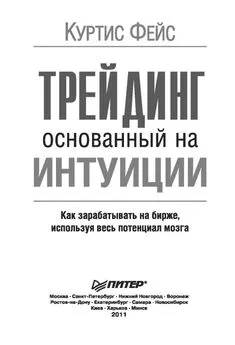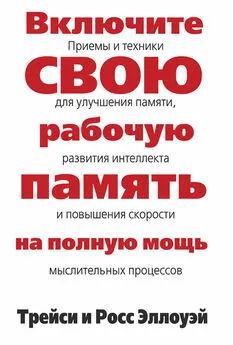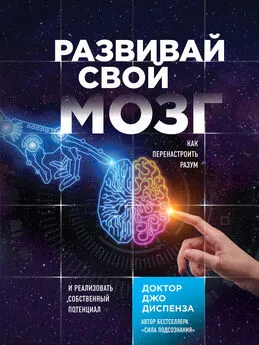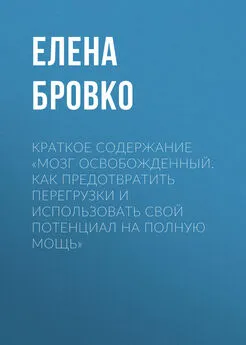Тео Компернолле - Мозг освобожденный. Как предотвратить перегрузки и использовать свой потенциал на полную мощь
- Название:Мозг освобожденный. Как предотвратить перегрузки и использовать свой потенциал на полную мощь
- Автор:
- Жанр:
- Издательство:Array Литагент «Альпина»
- Год:2015
- Город:Москва
- ISBN:978-5-9614-3976-1
- Рейтинг:
- Избранное:Добавить в избранное
-
Отзывы:
-
Ваша оценка:
Тео Компернолле - Мозг освобожденный. Как предотвратить перегрузки и использовать свой потенциал на полную мощь краткое содержание
Мозг освобожденный. Как предотвратить перегрузки и использовать свой потенциал на полную мощь - читать онлайн бесплатно полную версию (весь текст целиком)
Интервал:
Закладка:
A functional architecture of the human brain: emerging insights from the science of emotion. K.A. Lindquist, T.D. Wager, H. Kober, E. Bliss-Moreau, L.F. Barrett. Trends in Cognitive Sciences, November 2012, Vol. 16, № 11 533.
Clarify Brain Affective Processing Without Necessarily Clarifying Emotions.
Peter Walla and Jaak Panksepp. Novel Frontiers of Advanced Neuroimaging 2013. Chapter 6.
14
Dynamics of Hippocampal Neurogenesis in Adult Humans, Kirsty L. Spalding, Olaf Bergmann, Kanar Alkass, Samuel Bernard, Mehran Salehpour, Hagen B. Huttner, Emil Boström, Isabelle Westerlund, Celine Vial, Bruce A. Buchholz, Göran Possnert, Deborah C. Mash, Henrik Druid, Jonas Frisén, Cell, Volume 153, Issue 6, 6 June 2013, pp. 1219–1227.
15
Превосходный обзор нынешнего положения дел и последних открытий в этой области смотрите в недавнем выпуске (№ 80) журнала Neuroimage от 15 октября 2013 года, статья “Mapping the Connectome”.
Introduction to the NeuroImage Special Issue “Mapping the Connectome”, Steve Smith, NeuroImage, Volume 80, 15 October 2013, p. 1.
Functional interactions between intrinsic brain activity and behavior, Sepideh Sadaghiani, Andreas Kleinschmidt, NeuroImage, Volume 80, 15 October 2013, pp. 379–386.
What we can and cannot tell about the wiring of the human brain, Richard E. Passingham, NeuroImage, Volume 80, 15 October 2013, pp. 14–17.
Function in the human connectome: Task-fMRI and individual differences in behavior, Deanna M. Barch, and many others, NeuroImage, Volume 80, 15 October 2013, pp. 169–189.
Dynamic functional connectivity: Promise, issues, and interpretations, Deanna M. Barch, and many others, NeuroImage, Volume 80, 15 October 2013, pp. 360–378.
16
Здесь можно найти прекрасный обзор: Dual-Processing Accounts of Reasoning, Judgment, and Social Cognition. Jonathan St. B. T. Evans. Annual Review of Psychology. 2007/2008 Vol. 59: 255–278. An evaluation of dual-process theories of reasoning. MAGDA OSMAN. Psychonomic Bulletin & Review. Volume 11, Number 6 (2004), 988–1010 2004. https://qmro.qmul.ac.uk/xmlui/bitstream/handle/123456789/151/Evaluation%20of%20dual%20process%20theories.pdf?sequence=8
Explaining modulation of reasoning by belief. Goel, V. and Dolan, R.J. (2003) Cognition 87, B11–B22.
17
Stress: Vriend en Vijand. T. Compernolle Uitgeverij Lannoo Belgium. 2012. 14th edition. Четвертое обновленное издание на английском языке «Stress: Friend and Foe» выпущено в начале 2015 г. Некоторые материалы доступны на сайте www.brainchains.com.
18
Control of goal-directed and stimulus-driven attention in the brain. Corbetta, M., & Shulman, G. L. (2002). Nature Reviews Neuroscience, 3, 201–215.
19
Thinking fast and slow. Daniel Kahneman. Penguin Books. 2012. (Канеман Д. Думай медленно, решай быстро. – М.: АСТ, 2013.)
20
Ramscar, M., Hendrix, P., Shaoul, C., Milin, P., & Baayen, H. (2014). The Myth of Cognitive Decline: Non-Linear Dynamics of Lifelong Learning. Topics in cognitive science.
21
The human brain is intrinsically organized into dynamic, anticorrelated functional networks. Fox M.D., Snyder A.Z., Vincent J.L., Corbetta M., Van Essen D.C., Raichle M.E.. Proc Natl Acad Sci U S A. 2005 Jul 5; 102(27): 9673–8.
Functional connectivity in the resting brain: a network analysis of the default mode hypothesis. Greicius M.D., Krasnow B., Reiss A.L., Menon V. Proc Natl Acad Sci U S A. 2003 Jan. 7; 100(1): 253–8. Default network connectivity during a working memory task. Bluhm R.L., Clark C.R., McFarlane A.C., Moores K.A., Shaw M.E., Lanius R.A. Hum Brain Mapp. 2011 Jul.; 32(7): 1029–35. Epub 2010 Jul. 20.
22
Individual Differences and the Belief Bias Effect: Mental Models, Logical Necessity, and Abstract Reasoning. Donna Torrens. Thinking & Reasoning. Volume 5, Issue 1, 1999. pp. 1–28.
More evidence for a dual-process model of conditional reasoning. Henry Markovits, Hugues Lortie Forgues and Marie-Laurence Brunet. MEMORY & COGNITION. Volume 40, Number 5 (2012), 736–747.
23
General intellectual ability. Mithen, Steven. In Steven W. Gangestad & Jeffrey A. Simpson (eds.), The Evolution of Mind: Fundamental Questions and Controversies. 2006a. pp. 319–324. New York: The Guilford Press.
24
Divided Representation of Concurrent Goals in the Human Frontal Lobes. Sylvain Charron, Etienne Koechlin. Science 16 April 2010: Vol. 328 no. 5976, pp. 360–363. http://www.sciencemag.org/content/328/5976/360/F3.expansion.html.
25
Control of Attention Shifts between Vision and Audition in Human Cortex. Sarah Shomstein and Steven Yantis. The Journal of Neuroscience, November 24, 2004. 24(47): 10702–10706.
26
Visual attention is a single, integrated resource. Alexander Pastukhov, Laura Fischer, Jochen Braun. Vision. Research. Volume 49, Issue 10, 2 June 2009, pp. 1166–1173.
27
Divided Representation of Concurrent Goals in the Human Frontal Lobes. Sylvain Charron, Etienne Koechlin. Science 16 April 2010: Vol. 328 no. 5976, pp. 360–363. http://www.sciencemag.org/content/328/5976/360/F3.expansion.html
Is dual-task slowing instruction dependent? By Levy, Jonathan; Pashler, Harold. Journal of Experimental Psychology: Human Perception and Performance, Vol. 27(4), Aug. 2001, 862–869.
28
Рене Маруа, нейробиолог из Университета Вандербилта. Цит. по: http://www.npr.org/templates/story/story.php?storyId=126018694.
29
Understanding email interaction increases organizational productivity. T. Jackson. Ray Dawson. Darren Wilson. Communications of the ACM – Program compaction CACM Volume 46 Issue 8, Aug. 2003. pp. 80–84. http://citeseerx.ist.psu.edu/viewdoc/download?doi=10.1.1.5.8860&rep=rep1&type=pdf
30
Rogers and Monsell 1995, Rubinstein and Сo 2001.
31
A computational theory of executive cognitive processes and multiple-task performance: Part I. Basic mechanisms. Meyer, David E.; Kieras, David E. Psychological Review, Vol. 104(1), Jan. 1997, 3–65.
32
Juggling on a high wire: Multitasking effects on performance. Rachel F. Adlera, Raquel Benbunan-Fich. International Journal of Human-Computer Studies. Volume 70, Issue 2, Febuary 2012, pp. 156–168.
Investigating the effects of computer mediated interruptions: An analysis of task characteristics and interruption frequency on financial performance. K. Asli Basoglu, Mark A. Fuller,John T. Sweeney. International Journal of Accounting Information Systems. Volume 10, Issue 4, December 2009, pp. 177–189.
33
Executive Control of Cognitive Processes in Task Switching. Rubinstein, J. S., Meyer, D. E. & Evans, J. E. (2001). Journal of Experimental Psychology: Human Perception and Performance, 27, 763–797.
Task switching and the measurement of “switch costs”. Glenn Wylie, Alan Allport. Psychological Research. Aug. 2000, Volume 63, Issue 3–4, pp. 212–233.
An integrated model of cognitive control in task switching. Altmann, Erik M.; Gray, Wayne D. Psychological Review, Vol. 115(3), Jul. 2008, 602–639.
The cost of a voluntary task switch, C.M. Arrington, G. Logan, Psychological Science September 2004 vol. 15 no. 9, 610–615.
The role of inner speech in task switching: A dual-task investigation. M.J. Emerson, Akira Miyake, Journal of Memory and Language, 2003. 48(1): 148.
The effects of attentional load on saccadic task switching, Jason L. Chan, Joseph F. X. DeSouza, Experimental Brain Research, June 2013, Volume 227, Issue 3, pp. 301–309.
Burnout and impaired cognitive functioning: The role of executive control in the performance of cognitive tasks, Stefan Diestela, Marlen Cosmar & Klaus-Helmut Schmidt. Work & Stress: An International Journal of Work, Health & Organisations. Volume 27, Issue 2, 2013, pp. 164–180.
Self-interruptions in discretionary multitasking, Rachel F. Adler, Raquel Benbunan-Fich, Computers in Human Behavior, Volume 29, Issue 4, Jul 2013, pp. 1441–1449.
MRI reveals reciprocal inhibition between social and physical cognitive domains, Anthony I. Jack, Abigail J. Dawson, Katelyn L. Begany, Regina L. Leckie, Kevin P. Barry, Angela H. Ciccia, Abraham Z. Snyder, NeuroImage, Volume 66, 1 February 2013, pp. 385–401.
34
Voluntary Task Switching: Chasing the Elusive Homunculus. Arrington, Catherine M.; Logan, Gordon D. Journal of Experimental Psychology: Learning, Memory, and Cognition, Vol 31(4), Jul 2005, pp. 683–702.
35
Understanding email interaction increases organizational productivity. T. Jackson. Ray Dawson. Darren Wilson. Communications of the ACM – Program compaction CACM Volume 46 Issue 8, Aug. 2003. pp. 80–84. http://citeseerx.ist.psu.edu/viewdoc/download?doi=10.1.1.5.8860&rep=rep1&type=pdf
36
Allport, Styles, & Hsieh, 1994; Meiran, 1996; Rogers & Monsell, 1995 Juggling on a high wire: Multitasking effects on performance. Rachel F. Adlera, Raquel Benbunan-Fich. International Journal of Human-Computer Studies. Volume 70, Issue 2, February 2012, pp. 156–168.
37
Florian Waszak, Bernhard Hommel, Alan Allport, Task-switching and long-term priming: Role of episodic stimulusm priming: Role of episodicn costs, Cognitive Psychology, Volume 46, Issue 4, June 2003, pp. 361–413, Task switching, Trends in Cognitive Sciences, Stephen Monsell, Volume 7, Issue 3, March 2003, pp. 134–140, http://matt.colorado.edu/teaching/highcog/fall8/m3.pdf
38
Task-switching: Positive and negative priming of task-set. Allport, Alan; Wylie, Glenn Humphreys, Glyn W. (Ed); Duncan, John (Ed); Treisman, Anne (Ed), (1999). Attention, space, and action: Studies in cognitive neuroscience, pp. 273–296.
Task-Set Inertia, Attitude Accessibility,and Compatibility-Order Effects: New Evidence for a Task-Set Switching Account of the Implicit Association Test Effect. Karl Christoph Klauer Pers. Soc. Psychol. Bulletin, February 2005 vol. 31, № 2, pp. 208–217.
Inhibition, interference, and conflict in task switching, Russell E. Costa, Frances J. Friedrich, Psychonomic Bulletin & Review, December 2012, Volume 19, Issue 6, pp. 1193–1201.
Neural substrates of cognitive switching and inhibition in a face processing task, Camille Piguet, Virginie Sterpenich, Martin Desseilles, Yann Cojan, Gilles Bertschy, Patrik Vuilleumier, NeuroImage, Volume 82, 15 November 2013, pp. 489–499.
The role of inhibition in task switching: A review. Iring Koch, Miriam Gade, Stefanie Schuch, Andrea M. Philipp, Psychonomic Bulletin & Review, February 2010, Volume 17, Issue 1, pp. 1–14. http://download.springer.com/static/pdf/871/art%253A10.3758%252FPBR.17.1.1.pdf?auth66=1382011321_165db4d3f17d4383dce8638d6be473c5&ext=.pdf
39
Concurrent task effects on memory retrieval. Doug Rohrer, Harold E. Pashler. Psychonomic Bulletin & Review. March 2003, Volume 10, Issue 1, pp. 96–103.
Читать дальшеИнтервал:
Закладка:










